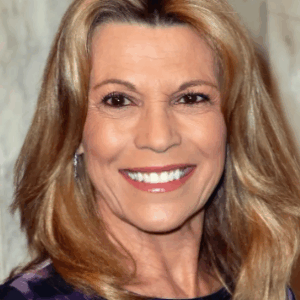In recent developments surrounding Hoda Kotb’s departure from the Today show, there seems to be a significant shift in the narrative regarding the reasons behind her decision.
Initially, official statements indicated that the separation was amicable and based on mutual understanding. However, emerging reports suggest a more complex reality.
The phrase “part ways” has often been used in the media to describe professional separations, but it can sometimes mask deeper issues at play.

Hoda’s departure, once portrayed as a personal choice driven by various life considerations, is now being reframed as a more financial decision. According to sources close to the situation, Hoda Kotb’s exit from the Today show was not just a matter of personal or professional fulfillment, but rather rooted in significant financial disagreements. The implication is that there were negotiations regarding her salary that ultimately did not meet her expectations. This revelation raises questions about the dynamics within the show and the broader context of media salaries, particularly for high-profile personalities.
Kotb, who has been a beloved figure on the show for many years, has often been celebrated not just for her journalistic prowess but also for her engaging personality and connection with audiences. Her ability to resonate with viewers has been a considerable asset to the show, which has faced increasing competition from other morning news programs. With her departure, the Today show is likely to feel a palpable void, one that may affect its ratings and viewer loyalty.

In an industry where public figures often negotiate contracts that reflect their market value, Hoda’s situation shines a light on the complexities of celebrity contracts in television. The phrase “They had no intention of paying me…” reveals a stark reality: in a cutthroat environment where talent is often pitted against one another, financial considerations can overshadow personal connections and mutual respect. It brings to the forefront discussions about how networks value their talent and the importance of recognizing their contributions.
The broadcasting industry is known for its fluctuating standards when it comes to compensation. High-profile personalities often have a significant say in their salaries, particularly when they have proven their worth through ratings and viewer engagement. The discontent stemming from Hoda’s situation could indicate a broader trend where established talent feels undervalued, potentially leading to a wave of resignations or changes within the industry.
Follow us to see more useful information, as well as to give us more motivation to update more useful information for you.
Moreover, Hoda’s departure can also be seen as a reflection of changing dynamics in television journalism, where financial decisions are increasingly intertwined with personal aspirations and career trajectories. The situation poses challenging questions about loyalty, commitment, and the extent to which financial considerations dictate professional relationships. In an era where media companies are often scrutinized for their business practices, it’s essential to consider how these financial negotiations impact the careers of those involved.

The fallout from Hoda Kotb’s decision to leave the Today show will likely ripple through the media landscape. Her absence may prompt shifts in the show’s format or lead to new strategies for attracting and retaining talent. As networks continue to navigate the competitive terrain of morning television, they must grapple with the realities of keeping their stars satisfied and motivated.
As fans of Hoda Kotb reflect on her impact on the Today show, the nuances of her departure will undoubtedly shape how they perceive the program moving forward. Her journey has been emblematic of the broader struggles faced by media personalities today, navigating the balance between personal fulfillment and financial security.

In conclusion, Hoda Kotb’s departure from the Today show has transitioned from a narrative of amicable separation to one highlighting deeper financial grievances. This shift sheds light on the challenges faced by media professionals in an ever-evolving landscape, emphasizing the importance of fair compensation and recognition of talent in fostering a sustainable and positive working environment. As this story develops, it will be interesting to see how it affects not only Hoda’s career but also the broader implications for television journalism as a whole.
Follow us to see more useful information, as well as to give us more motivation to update more useful information for you.





